News in Brief
-
 Humans
HumansBreast-feeding newborns might limit their allergy to pets later
Breast-feeding newborns might limit their allergy to pets later by inducing a protective mix of gut microbes in the baby.
By Nathan Seppa -
 Climate
ClimateCoastal Los Angeles losing fog to urban sprawl
Fog in parts of Southern California has become significantly less frequent due to urban warming.
-
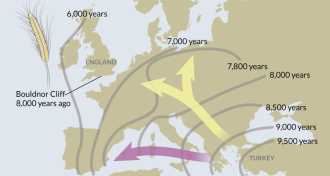 Anthropology
AnthropologyWheat reached England before farming
European hunter-gatherers may have traded for agricultural products 8,000 years ago.
By Bruce Bower -
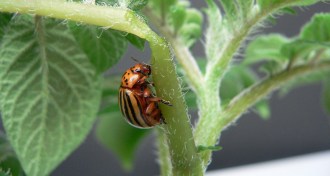 Plants
PlantsBeetle RNA makes crops a noxious meal
When beetles munch plants bearing their RNA, genes the bugs need to survive are turned off.
-
 Climate
ClimateScientists confirm amassing CO2 heats Earth’s surface
Rising levels of atmospheric carbon dioxide increase the amount of thermal radiation striking Earth’s surface.
-
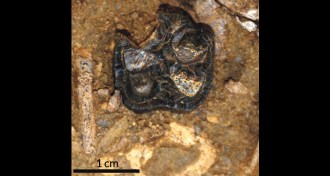 Paleontology
PaleontologyHippo history extracted from fossil teeth found in Kenya
Fossilized teeth from the newly identified Epirigenys lokonensis, an ancestor of the hippopotamus, are filling in some of the mammoth mammal’s history.
-
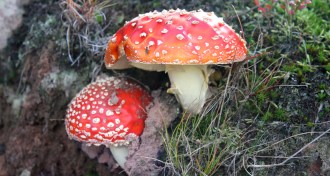 Life
LifeGene study digs into partnership between fungi and plants
Fungal genes for symbiotic relationship with plants evolved a few times, and relatively recently, a study suggests.
-
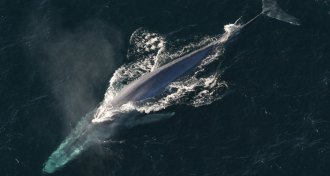 Animals
AnimalsOcean animals have bulked up since ancient eras
Marine animals today are much larger on average than they were in the Cambrian Period.
-
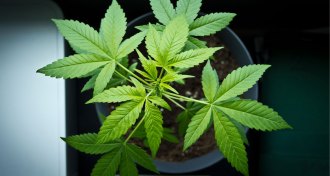 Neuroscience
NeuroscienceBlame pot munchies on nerve cells that normally nix appetite
Pot munchies demystified: Marijuana hijacks fullness nerve cells, making them send hunger signals instead.
-
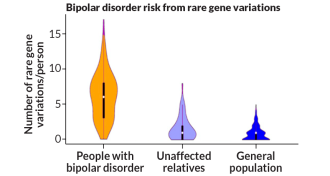 Neuroscience
NeuroscienceBipolar risk boosted by accumulation of rare versions of genes
A buildup of rare versions of genes that control nerve cell activity contributes to the genetic risk of bipolar disorder.
-
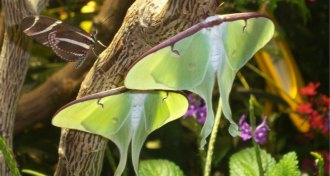 Ecosystems
EcosystemsFooled you! Whirling tails of luna moths deflect bat attacks
Luna moths can use their tails to reflect the echolocation pings of bats, tricking the predators into striking the tails instead of less expendable body parts.
By Susan Milius -
 Tech
TechFacebook detects signs of postpartum depression
An analysis of Facebook activity can identify new moms with postpartum depression.